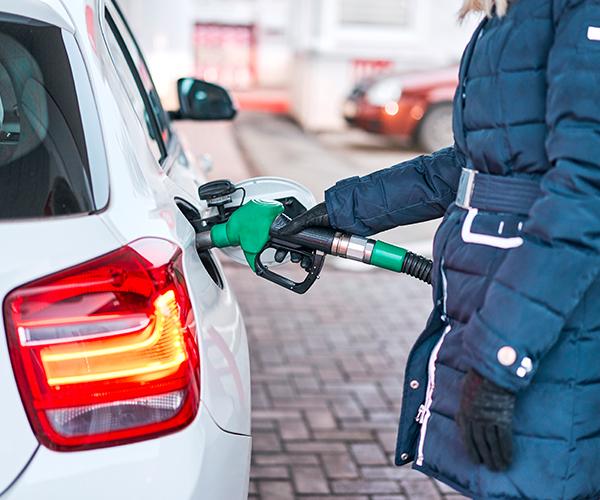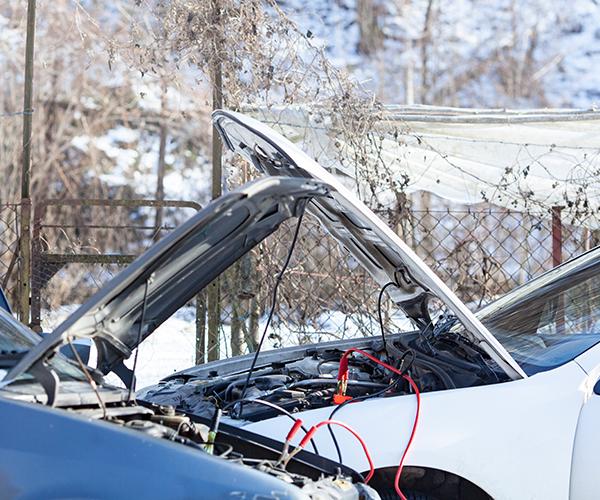How to Troubleshoot Why Your Car Won't Start in the Cold
Read Time: 3 minutes
Ugh! Car problems. Add in cold weather and you’ve got yourself a rough day. But, it’s nothing you can’t handle!
Check out these expert tips from RepairPal.com to troubleshoot why your car won’t start in cold weather.
1. Try to start your car and listen for the engine cranking
Potential Problem: Your fueling system
When you try to start your car, do you hear your engine cranking? You may have a fueling issue.
You may be thinking, “There’s no way it’s cold enough to freeze my gas.” While that may be true, parts of your fueling system can be affected by the cold long before your gas freezes.
For example, your fuel pump relies on pressure from the gasoline in your tank to function properly. If you have low levels of gas in your tank, the cold weather may have perpetuated the problem, causing your fuel pump to fail.
Things to try:
- Find a way to warm up your car. Try a safe engine block heater or an engine blanket.
- Put more gas in your tank if it’s below half-full.
Pro Tip: Keep your tank about half full during the winter to avoid some fueling system issues.

Read more: Car Insurance and Rental Cars: Everything You Need to Know
2. Try to start your car and listen for clicking or a low buzzing noise
Do you hear the starter trying harder than normal or not starting at all?
This usually sounds like “click, click, click” or, if it’s not starting at all, it may sound like a low buzz (an "errr” sound).
Potential problems: Your battery, alternator, or starter system
It may be too cold for your battery to start. Or, you may need to consider the age and condition of your battery. Most batteries shouldn’t be older than three to five years.
Another consideration is your battery’s cold cranking amps (CCA) rating and if it’s right for your vehicle and the climate you live in. Your dealer or local auto parts store will know what CCA rating your vehicle manufacturer recommends.
Things to try:
- Unplug and turn off anything drawing power from your vehicle (chargers, radio, heater, etc.). Turn your key to the “start” position in the ignition or hold down the start button for 10 seconds. If this doesn’t work the first time, wait five minutes and try again.
- Clean your battery cables and ensure they are tight.
- Get a jump-start.
- Warm up the battery with a safe engine block heater.
If all these fail, you may need to get a tow to your mechanic. Have them test your battery to see if that’s the culprit.

Read more: You Just Got Into a Car Accident. Now What?
3. Determine when you got your last oil change
Potential problem: Your engine oil
Oil tends to get thicker when it’s cold, which makes it hard for it to do its job. Some engine oils are specific for warmer weather. So, if you haven’t had your oil changed in a while, you may have old or ill-suited oil for cold weather trying to get your car running.
Things to try:
- Warm up your vehicle with a safe engine warmer. Then, start your vehicle (fingers crossed) to get it up to operating temperature. This will warm the oil. If you’re experienced in draining and replacing your oil, change your oil. Check your owner’s manual to make sure you’re using the right kind of oil for the weather and your vehicle.
- If you’re like the rest of us, it’s time to get a tow to the mechanic. They will need to change your oil and can look into other possible reasons your car may be struggling.
If none of these fixes work, it’s probably time to get cozy and call for a tow. Your mechanic will take it from there. But, you tried and that’s all you can do!
